Actions in Indonesia
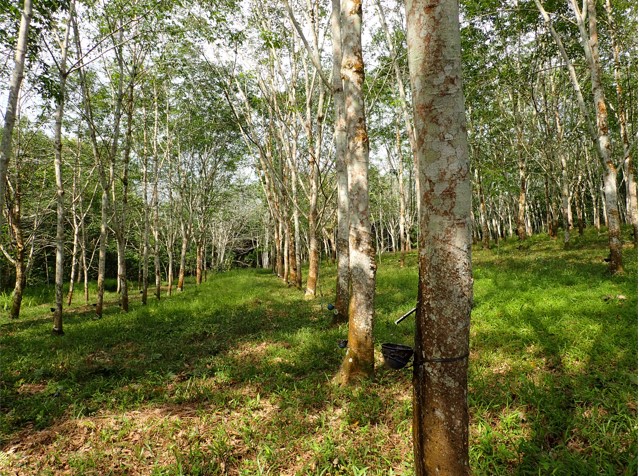
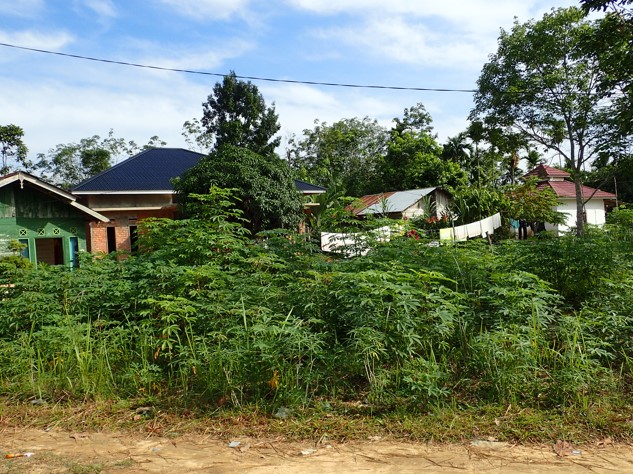
Why do we work in Indonesia?
Indonesia boasts the second largest natural rubber production in the world in FY2021, next to Thailand. Yokohama Rubber purchases a lot of natural rubber from Indonesia. However, the productivity of natural rubber per area in Indonesia is lower than that of Thailand or Vietnam, and leaf blight disease has been found to spread among rubber trees in the country. In addition to that, there are many brokers existing at multiple stages between farms and processing factories, which pose a problem of making commercial distribution complicated and hard to grasp.
For this reason, Yokohama Rubber decided to launch a project focusing on sustainability, hoping that natural rubber production in Indonesia will become sustainable.
Launching collaboration with PT Kirana Megatara Tbk
PT Kirana Megatara Tbk (hereinafter referred to as KM company) is one of the important suppliers for Yokohama Rubber, which has been making efforts to establish sustainable natural rubber production for a long time. For example, KM company builds a group of natural rubber farmers in an area where KM company's natural processing company is located, and by having such company deliver rubber directly to the natural rubber processing plant, KM company improves transparency in natural rubber procurement. The group of farmers can benefit from this arrangement in many ways such as they can earn more income by directly selling natural rubber to KM company than carrying out a trading in an ordinary way, they can trade deals with KM company with stability, and they can conduct study meetings within the group to improve farming techniques each other. KM company raises awareness of natural rubber coagulants, provide guidance about tapping technique, and also plays a role in the diffusion of agricultural knowledge such as by encouraging the introduction of Good Agricultural Practices (GAP)
In December 2022, KM company and Yokohama Rubber signed a Memorandum of Understanding (MOU) to launch their collaboration to realize sustainable natural rubber production.
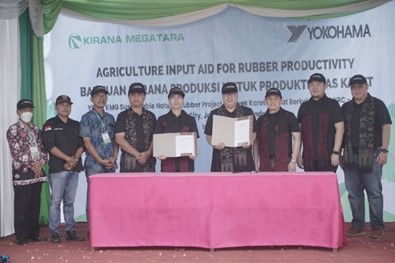
MOU signed between KM company and Yokohama Rubber
Fertilizer and natural rubber coagulants supplied at a seminar event held in the island of Sumatra
In December 2022, KM company and Yokohama Rubber held an event to support natural rubber farmers in Jambi in central Sumatra, Indonesia. At the event, groups of farmers introduced various initiatives they had been working on, and researchers gave lectures about the impact of rubber trees' diseases and how to prevent them. The participants also enjoyed a tapping contest to compete with each other over their skills to extract sap from rubber trees as well as a quiz on agricultural technique. The farmers attending the event received a complementary supply of fertilizer and natural rubber coagulants (formic acid).
In Indonesia, due to the stagnation of natural rubber prices, natural rubber farmers use cheap and easily available acid, such as battery waste liquid containing sulfuric acid, to coagulate natural rubber. The use of acid unsuitable for coagulating natural rubber causes its quality deterioration and yield reduction. Such practice also raises the problem of decrease in natural rubber yields resulting from extracting tree sap not fully containing natural rubber. The reality is that it is difficult for farmers to properly produce rubber due to a lack of such accurate technical knowledge, which further worsens their economic difficulties. For this reason, we provided programs aiming for them to acquire accurate farming knowledge at the event.
On the day before the event, we held an exchange meeting with the group of farmers. We asked them about the problems they were facing and had them introduce the initiatives they had been working on.
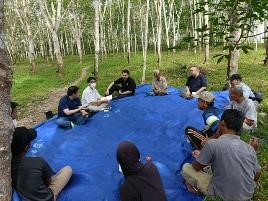
Interaction with farmers' group
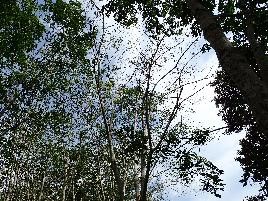
Defoliated rubber tree due to leaf blight (disease outbreak)
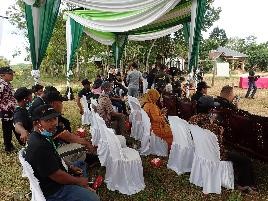
Scene at the farmer support event
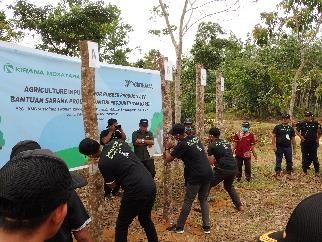
Competing agricultural skills through a tapping competition
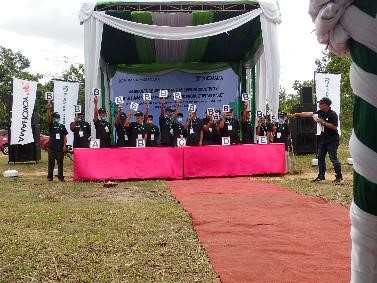
Quiz competition on agricultural knowledge
Future challenges and initiatives
Indonesia has archived significant economic development, which has also led to the advancement of deforestation at an alarming rate in its region. We believe that success in realizing sustainable natural rubber production in this situation depends on increasing natural rubber production volume without increasing the agricultural land area to stabilize farm management. We will make continuous efforts to provide guidance on proper agricultural technique, supply materials, take initiatives for the enhancement of their business management such as an agroforestry program, and provide supports needed by local farmers.


